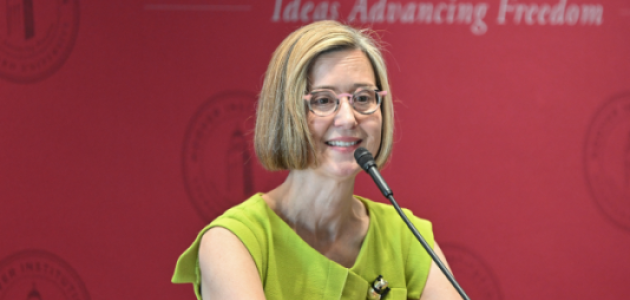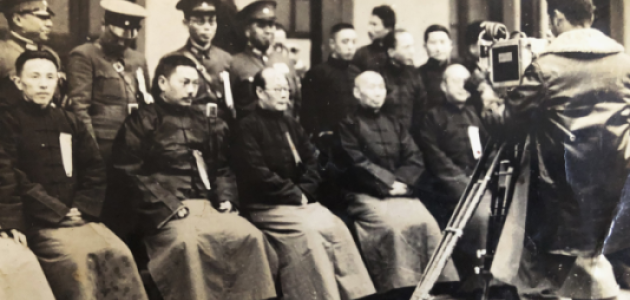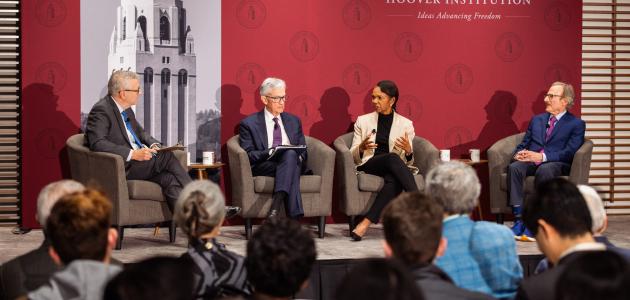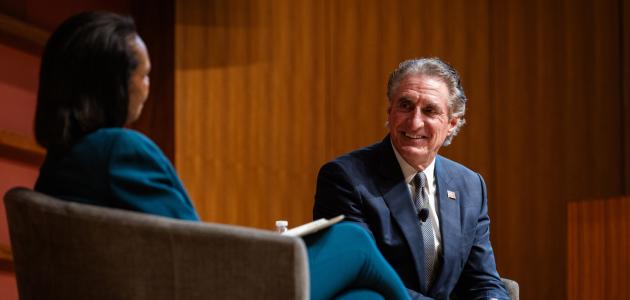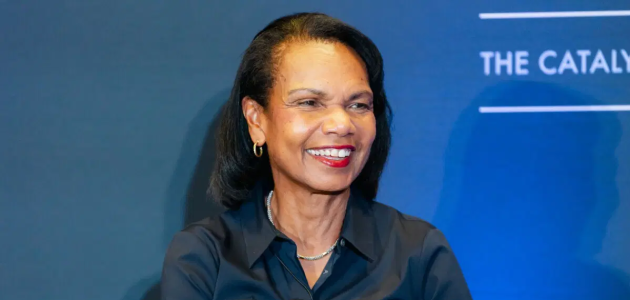School vouchers, tax credits, charter schools, the right to leave failing schools—all are concepts hardly known as recently as fifteen years ago. Though propounded as early as 1955 by Hoover scholar Milton Friedman, these ideas did not gain currency much later and now appear on the verge of pressing onward to become accepted options in American education.
The Future of School Choice (Hoover Institution Press, 2003), edited by Paul E. Peterson, uses the U.S. Supreme Court decision Zelman v. Simmons-Harris as its point of reference. In that case, the court rules that the school voucher program in Cleveland, Ohio did not violate the Constitution's ban on the "establishment" of religion. With this case as its pivot, Peterson and 12 contributors chart the constitutional and philosophical as well as the policy implications of the concept and the court decision.
Virtually every effort to increase choice and competition in education has met stern resistance from teachers unions, established school boards, and most state departments of education, Peterson writes.
Much of the antagonism to choice has expressed itself in the courtroom. School vouchers were said to be unconstitutional, because they violated the First Amendment ban on the establishment of religion. But it remained unclear whether school vouchers actually established a religion, or simply permitted the free exercise thereof, a right also protected by the First Amendment. The decision in Zelman v. Simmons-Harris in 2002 answered this question by saying that no constitutional violation occurs as long as voucher programs take a neutral stance, allowing students a choice of a religious or secular school.
Peterson and the contributions examine whether
-
the decision opens the door to large-scale school choice or whether choice programs in the future will be as small and scattered as those that have thus far been tried, or
-
school choice simply will become the latest fad to be given a trial run, only then to be abandoned or current programs are the small steps taken thus far harbingers of an educational future quite unlike the present
"Much hangs on the answer to this question," Petersons aid. "American education, for at least a half century, has been stagnant, excessively bureaucratized, overrun by special groups and vested interests, unable to respond to the changing dynamic of society as a whole. The problem is not to be solved by adding more dollars to the equation, by teaching fewer students in each class, or by creating a few school-choice boutiques."
In this volume, the authors consider whether something more substantial might be occurring. They examine the meaning of the recent Supreme Court decision and consider the new political and policy context it has created. The chapter authors do not provide any single answer as to the future of school choice, though all acknowledge the manifold obstacles the movement must overcome. Yet there is a certain optimism, a sense, that this movement, unlike past school reform fads, is likely to press forward, simply because choice, once granted, is seldom withdrawn. Once parents exercise it, they love choice dearly, all but ensuring its perpetuation, Peterson said.
Contributors to the book were Peter Berkowitz, Hoover research fellow and associate professor of law, George Mason University; Clint Bolick, vice president and national director of state chapters at the Institute of Justice; Ronald Brownstein, national political correspondent, Los Angeles Times; Louis R. Cohen, partner of Wilmer, Cutler & Pickering; Charles L. Glenn, professor of education policy and fellow of the University Professors Program, Boston University; C. Boyden Gray, partner of Wilmer, Cutler & Pickering; Steven K. Green, associate professor, Willamette University College of Law; Jan De Groof, professor, College d'Europe, Brussels, Belgium and president of the European Association for Education Law and Policy; Bryan Hassel, co-director of Public Impact, an education policy consulting firm; Terry M. Moe, Hoover senior fellow and professor of political science, Stanford University; Paul Peterson, Hoover senior fellow, Henry Lee Shattuck Professor of Government on Education Policy and Governance at Harvard University, and editor-in-chief of Education Next: A Journal of Opinion and Research; Kenneth W. Starr, partner at Kirkland & Ellis, adjunct professor at New York University, distinguished visiting professor, George Mason University Law School, and, Martin R. West, research associate in the Program on Education Policy and Governance, Harvard University.
Complimentary copies of the book are available to working press from Hoover Public Affairs.








